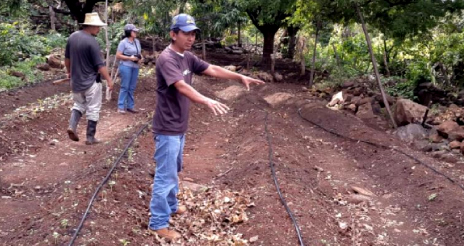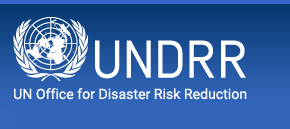- Our Mandate
- Mission and Objectives
- UNDRR in the UN
- Work Programme & Annual Reports
- Results Based System
- Work Partnerships
- Headquarters - Geneva
- SG-UN representatives for DRR
- Regional Office – The Americas and the Caribbean
- Head of the Regional Office – The Americas and the Caribbean
- What is Disaster Risk Reduction?
- What is the International Strategy?
- History of UNDRR
Latin America and the Caribbean have guidelines for Disaster Risk Reduction in the Agricultural and Food and Nutrition Security Sector
 Photo credit: FAO/Honduras
Photo credit: FAO/Honduras
Photo credit: FAO/Honduras
By: UNDRR – The Americas
ASUNCIÓN, Paraguay, December 7, 2016 - Latin America and the Caribbean, a region where 34.3 million people still suffer from hunger, now has the basic guidelines and recommendations for the integration of disaster risk management and adaptation to climate change in the planning and implementation of actions for the sustainable development of the agricultural and food and nutritional security sector, through the implementation of the Sendai Framework for Disaster Risk Reduction 2015-2030 in this sector.
This is thanks to the publication of the document “Guidelines and recommendations for the implementation of the Sendai Framework for Disaster Risk Reduction in the agricultural and food and nutrition security sector, Latin America and the Caribbean,” as a result of the collaboration between the Organization of American States, The United Nations Food and Agriculture Organization (FAO) and the United Nations Office for Disaster Risk Reduction (UNDRR) during the First Meeting of Ministers and High-Level Authorities on the Implementation of the Sendai Framework for Disaster Risk Reduction held in Asunción, Paraguay last June.
It should be noted that the majority of the population facing hunger in the region is concentrated in rural areas and in many cases is made up of subsistence farmers. In addition, millions of producers in the region’s poorest rural areas are family farmers and are at very high risk, since the impact of disasters on production goes beyond the momentary loss of income or opportunities and directly impacts food security and survival.
Therefore, the effect of disasters on the sector and the consequences of climate change not only endanger or reverse the gains made in the development of rural territories in Latin America and the Caribbean, but also the very food and nutritional security of its entire population, as well as the capacity of the region to cope with a growing world population and a demand for food that is expected to increase by 60 per cent by 2050.
Faced with this challenge, the FAO believes that the agricultural sector in Latin America and the Caribbean has a strong capacity to reduce the risk of disasters and contribute to the resilience of livelihoods. Today, the sector faces an important and complex challenge, which is to achieve more resilient productive systems that are both more productive and efficient, preserve the productive base of natural resources and eco-systemic services, and establish the ability to withstand risks and shocks exacerbated by climate change, said Jorge Meza, FAO's Chief Forestry Officer.
This transition cannot be achieved without the development of sectoral measures for Disaster Risk Management involving technologies, productive practices and sustainable use of natural resources, as well as considerable changes in terms of governance, legislation, policies and public and private investment,” added Mr. Meza.
The document “Guidelines and recommendations for the implementation of the Sendai Framework for Disaster Risk Reduction in the agricultural and food and nutrition security sector, Latin America and the Caribbean” was conceived as an instrument to support the implementation of pillar four of the "CELAC Plan for Food Security, Nutrition and Hunger Eradication 2025: Stable production and timely attention to socio-natural disasters that may affect food availability".
In turn, it responds directly to the concerns expressed by the countries at the 34th session of the FAO Regional Conference for Latin America and the Caribbean in Mexico in 2016 on the need to increase disaster risk reduction efforts in the sector.
Related links
Download Sendai Framework and agricultural sector guidelines document
Parallel event FAO-UNDRR on DRR and the agricultural sector
Follow the UNDRR news online:
 Now we have twitter account @UNDRR Américas y el Caribe
Now we have twitter account @UNDRR Américas y el Caribe
JOIN US!
Tweets por el @UNDRR Américas y el Caribe
